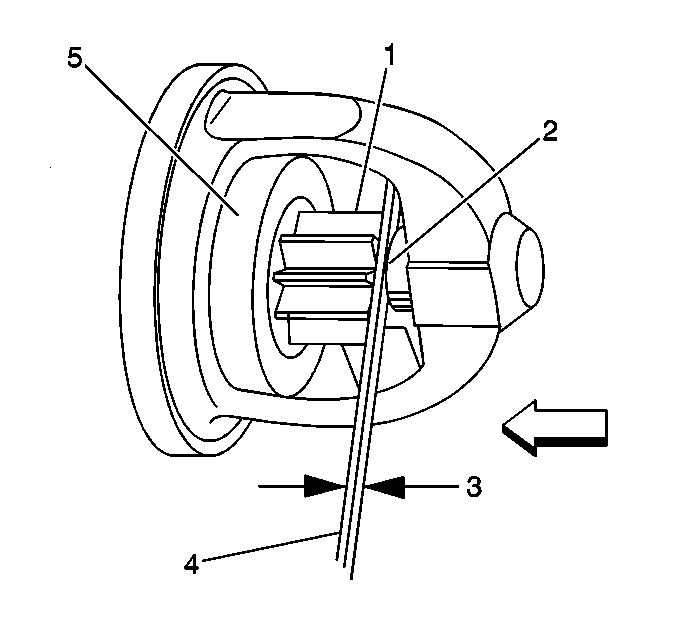For 1990-2009 cars only
The pinion clearance cannot be adjusted. Improper clearance is an indication of worn parts. The following procedure describes the pinion clearance inspection:
- Secure the starter motor in a vise or equivalent fixture so that the opening in the drive end housing is accessible for measurement.
- Disconnect the starter motor field lead from the solenoid M terminal.
- Insulate the starter motor field lead from the solenoid M terminal.
- Connect the battery ground (negative) lead to a clean metal ground on the motor housing.
- Connect a 12 volt battery lead to the solenoid S terminal.
- Momentarily ground a jumper lead from the solenoid M terminal to the solenoid frame. This will shift the pinion into the cranking position. The pinion will remain in the cranking position until the jumper lead is removed.
- Push the pinion back toward the commutator end to eliminate any free movement of the pinion on the shaft.
- Measure the distance between the pinion (1) and the pinion stop collar (2) using feeler gauges (4).
- Disconnect the negative battery lead from the starter motor housing (the pinion will retract). Disconnect the positive lead from the solenoid S terminal.
- Replace the starter motor when the clearance is outside the specifications.
Caution: Keep fingers and tools away from the opening in the starter drive housing while performing the Starter No Load Test. The strong shifting action of the solenoid could cause personal injury or damage as the drive pinion moves into the cranking position and spins.

Notice: Do not allow the solenoid pull-in current to flow for more than 15 seconds at a time. The windings can be damaged by overheating. Also, the current draw readings will decrease as the windings heat up.

The clearance should be from 0.25-4.06 mm (0.010-0.160 in).
